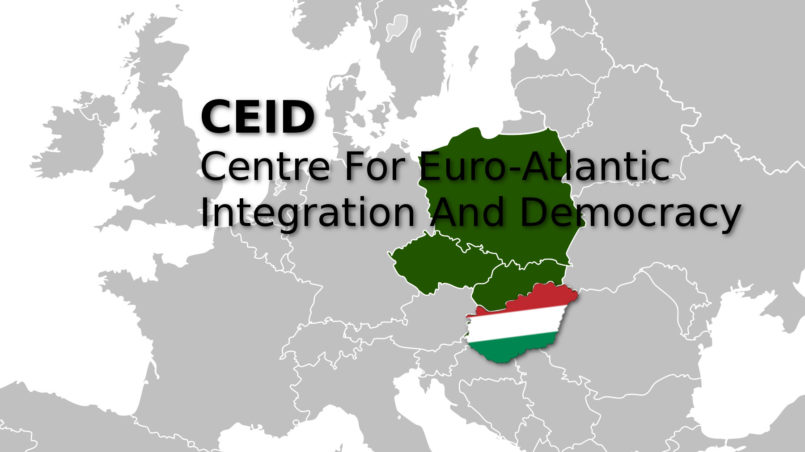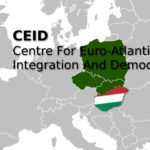How Could Europe be Shaped?

Event data
- Datum
- 29. 6. 2017
- Host
- ORF-DialogForum in Kooperation mit der Erste Stiftung und dem Europäischen Forum Alpbach
- Location
- ORF-Funkhaus Wien, Argentinierstraße 30A, 1040 Wien
- Event-type
- Podiumsdiskussion
- Participants
- Edit Inotai, Centre For Euro-Atlantic Integration And Democracy
- Philippe Narval, Europäisches Forum Alpbach
- Matthew Goodwin, Chatham House
- Nini Tsiklauri, Pulse of Europe
- Cornelia Vospernik, ORF-WELTJournal
On 29 June I attended a discussion at the ORF-DialogForum. The subject was how would a Europe, without borders, open to development and oriented towards the future, look? At the same time the realistic chances that such a Europe could exist were discussed and facts presented.
The guests in the discussion were Edit Inotai from the “Centre For Euro-Atlantic Integration And Democracy” (CEID) in Budapest; the CEID is an NGO in Hungary which analyses the impact of EU regulations on Hungary; it also oversees the relationships and the exchange of information between the Visegrád Group (i.e. Poland, the Czech Republic, Slovakia and Hungary). A further participant in the discussion was Philippe Narval from the European Forum Alpbach, an inter-disciplinary platform for science, politics, business and culture. Matthew Goodwin from “Chatham House”, an independent policy institute in London and a global leader, also took part. Nini Tsiklauri from “Pulse of Europe”, a pro-European, pan-European NGO, as well as Cornelia Vospernik from “ORF-WELTJournal” were also present. The moderator who chaired the discussion was Klaus Unterberger from the ORF Public Value team.
The moderator opened the discussion referring to the fact that Europe is providing some worrying headlines:
However, there is also another side to Europe:
Unterberger asked Nini Tsiklauri why she believes in a common Europe. She replied that, for her, Europe is the ongoing striving for democracy and human rights and, therefore, it is worth fighting for. In response to a further question, she stated that the Pulse of Europe is a transnational civil movement which has gained strength since February. On the first Sunday of every month, people in 180 cities in Europe meet in order to show support for a common Europe.
Unterberger then turned to Goodwin and asked him how the population are now dealing with Brexit. He replied that the people have fully accepted the vote and even the Labour Party have not spoken out against the referendum but rather have accepted its result.
Unterberger turned once again to Nini Tsiklauri with the question of whether her organisation also has members in Great Britain. She responded that there is a large student group in Bath which is of the opinion that “it is not yet too late”. The people with whom she has contact can, however, no longer hear the word “Brexit” as they have given up hope that there is a possibility for a reversal.
Unterberger posed a further interesting question to Edit Inotai: whether the Hungarian President, Viktor Orbán with his criticism of the EU, represents a threat to the common project. Inotai replied that Orbán only criticises the Eurocrats and the European Establishment and less the Union itself. This is because two-thirds of the Hungarian population consider the EU to be very positive.
One only has to look at the buildings and infrastructure supported with EU funds to realise that the memebership is good for Hungary.
Particularly revealing was Unterberger’s question to Goodwin as to whether, in the research conducted by “Chatham House”, there were common, cross-class positions among the 10,000 respondents in ten European countries (the control group consisted of 1,800 people from the upper class in order to establish whether the opinions correlate). Goodwin is of the opinion that there is consensus, above all as regards the enthusiasm for a European identity as well as for the view that wealthier member states should help those who are poorer. The people are also satisfied with the quality of democracy within the EU. However, on questions relating to political beliefs and migration as well as to the refugee crisis, there is a lack of consensus in Europe.
The opinions on these issues are very different in the social classes. To the question of what role education plays in these differences of opinion between the classes, Goodwin responded that it is precisely education which leads to other values. The lower class feel left behind and think completely differently about Europe. They fear the refugee crisis and are afraid of the future.
Cornelia Vospernik stated that probably every EU citizen is aware that their continent is one of the few which upholds values. In the case of the USA, this is no longer of such significance considering that currently an authoritarian President holds office.
When the discussion turned to the media, Philippe Narval stated that money which flows to state advertisements in free newspapers should rather be invested in high-quality newspapers. In comparison to this, in the UN High Commission for Refugees, only one-sixth of the sum which flows into state advertisements was invested, namely only 5 million Euro in contrast to 30 million Euro.
A further possibility is “endowed” journalism. He referred to a statement by Edit Inotai who reported that Hungarian newspapers have been bought up by the government – the previous owners were foreign investors – who thereby made a profit. After this topic was dealt with, Klaus Unterberger invited the audience to participate.
As a whole, this event was, in my opinion, very instructive. Unusually constructive contributions were introduced. I recommend anyone who is interested in such – from my perspective, factually well-grounded – discussions to consult the PublicValue website of ORF.
Credits
| Image | Title | Author | License |
|---|---|---|---|
 |
CEID – Zentrum für Euro-Atlantische Integration und Demokratie | Bildkomposition: Patryk Kopaczynski | CC BY-SA 4.0 |
